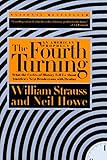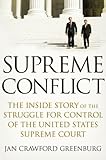| |
|
|
| |

|
|
| |
Update March 11, 2008: Admiral William Fallon Resigns. Read more.
|
|
| |

Photo Credit: U.S. Department of Defense. |
“I try to be reasonably predictable to my own people and very unpredictable to potential adversaries.” Admiral William “Fox” Fallon.
“If, in the dying light of the Bush administration, we go to war with Iran, it’ll all come down to one man. If we do not go to war with Iran, it’ll come down to the same man. He is that rarest of creatures in the Bush universe: the good cop on Iran, and a man of strategic brilliance. His name is William Fallon, although all of his friends call him “Fox,” which was his fighter-pilot call sign decades ago. Forty years into a military career that has seen this admiral rule over America’s two most important combatant commands, Pacific Command and now United States Central Command, it’s impossible to make this guy–as he likes to say—‘nervous in the service.’ ” Thomas P.M. Barnett
Summary Points:
- Admiral William “Fox” Fallon cautions against war with Iran
- His command as Commander U.S. Central Command was supposed to end the summer 2009.
- May be relieved of command early and “it may well mean that the president and vice-president intend to take military action against Iran before the end of this year and don’t want a commander standing in their way.”
- Stands up for current generation of young officers in the U. S. military
- Believes functioning societies and economies give birth to democratic governments.
- Pushes regional-security dialogue solutions.
- Example: Involve all the mid-eastern countries instead of just Palestine and Israel.
- Pushes economic cooperation between countries.
- Example:
- “Tajikistan is 95 percent mountainous and extremely food dependent. Its main asset is its untapped hydroelectric capacity. Afghanistan presents just the opposite picture–food to export but most of the country lacks an effective electric grid.”
- On the subject of failed states, he said “What I learned in the Pacific is that after a while the tableau of failed, failing, or dysfunctional states becomes a real burden on the functional countries and a problem for their neighborhood, because they breed unrest and insecurities and attract troublemakers very well. They’re like sewers, and they begin to fester. It’s bad for business. And when it’s bad for business, people tend to start restricting their investments, and they restrict their thinking, and it allows more barriers, so we’re back to building walls again instead of breaking them down. If you have to build walls, it means you’re moving backward.”
- U. S. Central Command stretches from East Africa to the Chinese border with Iraq on the western edge and Afghanistan on the eastern edge. It includes Pakistan, the Gaza Strip, the post-Soviet republics of Central Asia, and Iran.
- The day before Pakistani strongman Pervez Musharraf declared emergency rule, he talked with the U. S. Ambassador to Pakistani, Anne W. Patterson and Fallon explaining his rationale and how long he expects it to last.
- Fallon didn’t belief Benazir Bhutto’s return to the country would be useful.
- He is a subordinate who freely speaks his mind, a Patient methodical man who is from the “walk softly and carry a big stick” school, continues the naval-officer tradition of emasculating bluntness, a hands-on action, in the field officer, has an eye for detail, and a great strategic thinker.
- Why people were freaking out at the Pentagon and on Capitol Hill as he initiated a military-to-military outreach to the Chinese armed forces when he took charge of the Pacific Command in 2005. The Chinese were scheduled to be our next war and the talks threatened spending on weapons systems and major vehicle platforms.
Brief Biography of Admiral William “Fox” Fallon:
Forty-years military career (1967 to 2007).
1967 Villanova University graduate where he was in their Navy ROTC Program Designated a naval flight officer upon completion of flight training in December 1967.
Admiral Fallon four-star assignments include:
- Vice Chief of Naval Operations (October 2000 to August 2003)
- Commander U.S. Atlantic Fleet (October 2003 to February 2005)
- Commander U.S. Pacific Command (February 2005 to March 2007)
- Commander U.S. Central Command (March 16, 2007 to current)
|
|
| |
Map of Central Command’s Region

Credit: U.S. Department of Defense (interactive map).
|
|
| |
Source Links:
The Man Between War and Peace, Esquire
The Man Between War and Peace, Esquire — print version
|
|
Filed under: Military | Tagged: Admiral William Fox Fallon, Afghanistan, Bahrain, Djibouti, Egypt, Eritrea, Ethiopia, Iran, Iraq, Jordan, Kazakhstan, Kenya, Kuwait, Kyrgyzstan, Lebanon, map, Oman, Pakistan, Qatar, Resigns, Saudi Arabia, Seychelles, Somalia, Sudan, Syria, Tajikistan, Turkmenistan, U.A.E., U.S. Central Command, Uzbekistan, Yemen |


















[…] (Read our summary of the Esquire article on Admiral William Fallon.) […]